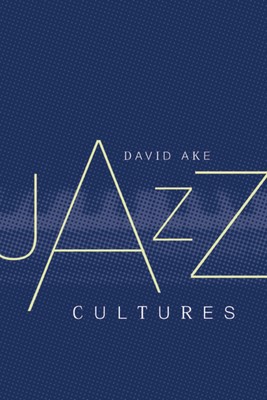
- We will send in 10–14 business days.
- Author: David Ake
- Publisher: University of California Press
- ISBN-10: 0520228898
- ISBN-13: 9780520228894
- Format: 15.5 x 23.3 x 1.6 cm, minkšti viršeliai
- Language: English
- SAVE -10% with code: EXTRA
Reviews
Description
From its beginning, jazz has presented a contradictory social world: jazz musicians have worked diligently to erase old boundaries, but they have just as resolutely constructed new ones. David Ake's vibrant and original book considers the diverse musics and related identities that jazz communities have shaped over the course of the twentieth century, exploring the many ways in which jazz musicians and audiences experience and understand themselves, their music, their communities, and the world at large.
Writing as a professional pianist and composer, the author looks at evolving meanings, values, and ideals--as well as the sounds--that musicians, audiences, and critics carry to and from the various activities they call jazz. Among the compelling topics he discusses is the "visuality" of music: the relationship between performance demeanor and musical meaning. Focusing on pianists Bill Evans and Keith Jarrett, Ake investigates the ways in which musicians' postures and attitudes influence perceptions of them as profound and serious artists. In another essay, Ake examines the musical values and ideals promulgated by college jazz education programs through a consideration of saxophonist John Coltrane. He also discusses the concept of the jazz "standard" in the 1990s and the differing sense of tradition implied in recent recordings by Wynton Marsalis and Bill Frisell.
Jazz Cultures shows how jazz history has not consisted simply of a smoothly evolving series of musical styles, but rather an array of individuals and communities engaging with disparate--and oftentimes conflicting--actions, ideals, and attitudes.
EXTRA 10 % discount with code: EXTRA
The promotion ends in 21d.07:37:47
The discount code is valid when purchasing from 10 €. Discounts do not stack.
- Author: David Ake
- Publisher: University of California Press
- ISBN-10: 0520228898
- ISBN-13: 9780520228894
- Format: 15.5 x 23.3 x 1.6 cm, minkšti viršeliai
- Language: English English
From its beginning, jazz has presented a contradictory social world: jazz musicians have worked diligently to erase old boundaries, but they have just as resolutely constructed new ones. David Ake's vibrant and original book considers the diverse musics and related identities that jazz communities have shaped over the course of the twentieth century, exploring the many ways in which jazz musicians and audiences experience and understand themselves, their music, their communities, and the world at large.
Writing as a professional pianist and composer, the author looks at evolving meanings, values, and ideals--as well as the sounds--that musicians, audiences, and critics carry to and from the various activities they call jazz. Among the compelling topics he discusses is the "visuality" of music: the relationship between performance demeanor and musical meaning. Focusing on pianists Bill Evans and Keith Jarrett, Ake investigates the ways in which musicians' postures and attitudes influence perceptions of them as profound and serious artists. In another essay, Ake examines the musical values and ideals promulgated by college jazz education programs through a consideration of saxophonist John Coltrane. He also discusses the concept of the jazz "standard" in the 1990s and the differing sense of tradition implied in recent recordings by Wynton Marsalis and Bill Frisell.
Jazz Cultures shows how jazz history has not consisted simply of a smoothly evolving series of musical styles, but rather an array of individuals and communities engaging with disparate--and oftentimes conflicting--actions, ideals, and attitudes.


Reviews